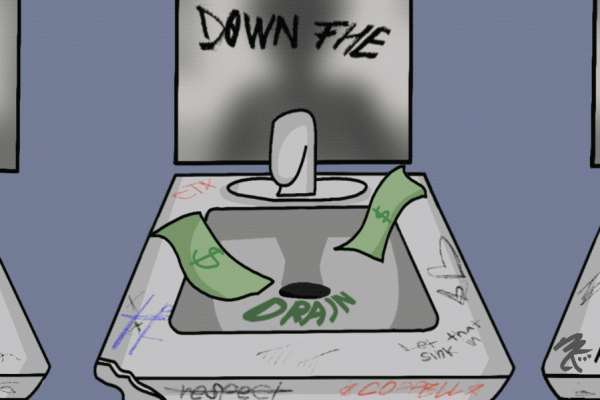Embracing failure ensures just that
The goals and standards we set for ourselves define our future. Success and failure are natural steps in that journey. For as long as we can remember, success is held on a higher scale than failure. But, what if that is not the case anymore?
The scales seem to have tipped in the favor of failure nowadays. Teenagers and young adults alike, have been judged on the basis of the passion of their feelings rather than their actual merit. This type of development surely breeds a group who embraces failure, rather than work their tails off to avoid it.
Glorifying failure and supporting the “feelings” generation we now grow up in, may genuinely set most of us up for complete failure.There comes a time when embracing the possibility of failure can become a self-fulfilling prophecy.
It is important to make the distinction between a mistake and failure. Mistakes are something we should not be ashamed of, nor is failure for that matter. With that being said, we need to stop ourselves from having that safety net. If we really wish to succeed, we must have a healthy fear of failure. Without the fear of failure, success becomes that much harder to achieve.
We do, however, live in a world where “fat shaming” and “skinny shaming” all make shame seem to be an affront to a person’s inherent abilities. This is a ridiculous belief; shame is a natural part of a person’s growth and ability to become a better person. Not to say we should make someone feel ashamed for failing, but we certainly should not celebrate it.
Feelings have taken an unhealthy front seat in people’s lives. On college campuses, students are given extension on their finals because they feel traumatized by the Michael Brown and Eric Garner cases. I can think of no better example of a college facilitating a student’s eventual failure.
By focusing on our feelings, and choosing to embrace failure so as to not feel bad when we do fail, is, quite ironically, a sign of failure. This frantic rush to not feel bad about ourselves has created an environment in which success is less important than someone feeling good about themselves.
This idea is preposterous and quite detrimental to a young person who is learning to survive in the real world. We should be encouraged to give our everything in order to not fail, not glorify failure by comparing ourselves to Henry Ford or Abraham Lincoln (both of whom failed several times before their success).
Failure is not inherently good. It can, however, be put to good use.

Emma is the Executive Editorial Page Editor at The Sidekick. She enjoys politics, writing and traveling.








